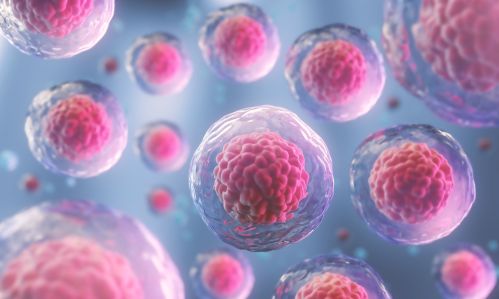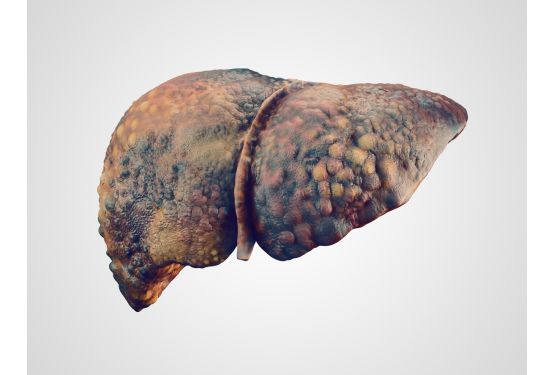Cirrhosis. Stem cell therapy for terminally ill patients
This article is a partial translation of the scientific publication “Cell Transplantation, Modern Treatment Method, and Prospects,” medical journal Rev Med Suisse.
Regenerative medicine restores the function of an organ or its damaged part. The transplantation of organs and cells is the real breakthrough in the treatment of even fatal pathologies. However, the organ shortage makes it impossible to save all patients. In Switzerland, for example, more than 500 patients having alcoholic liver disease die annually.
In developed countries, organ transplantation and stem cell therapy are used for treating many incurable diseases. However, they are not widely available due to high costs and the lack of donors. Organ transplantation is an invasive procedure that implies a large number of risks but risk-taking is often the only chance for recovery.
Many patients do not lose hope and believe that islet cell transplantation, hepatocytes transplantation, mesenchymal stem cell transplantation, and the transplantation of dopamine neurons can help them.
There is always a high demand for donor organs in Switzerland, so Swiss scientists are focusing on biomedicine. Biomedicine is less invasive, and in vitro cell, culture technology makes this kind of therapy more accessible from an ethical point of view. Cell transplantation has long been widely used in medicine along with allogeneic hematopoietic stem cell transplantation (HSCT) that has been used to treat leukemia, myeloma, and lymphoma since the 1960s.
In Geneva, pancreatic islet transplantation was first performed in 1992 to treat type 1 diabetes mellitus. Transplanted islet cells begin to produce insulin that regulates the level of glucose in the blood. More than 275 transplants were manufactured in Geneva in 1992-2018, which has allowed Geneva and the GRAGIL Company to become the world leader in this field.
Following that example, French laboratories are currently developing hepatocyte transplantation for the treatment of fulminant hepatitis, mesenchymal stem cells (MSCs) transplantation - for the treatment of cirrhosis, and dopamine cell transplantation - for the treatment of Parkinson's disease.
These methods of treatment have proved to be effective. However, in order to be widely used in medicine further researches are required. Studies of transplanted cells have shown that some cells can transform into a tumor with time.
Mesenchymal Stem Cell Therapy for Liver Cirrhosis
In Western countries, cirrhosis is the third leading cause of death among 45-65-year-old patients suffering from this disease. Treatment of cirrhosis may include symptomatic therapy, treatment of co-morbidities (hepatitis B and C), exclusion of toxic agents (total abstinence of alcohol consumption), and a liver transplant.
There are some contradictions to a liver transplant: absence of required vaccinations, failures in treating alcohol dependence, frequent relapses, the patient's age, state of health... These contradictions encouraged scientists to concentrate on the researches of mesenchymal stromal/stem cells (MSCs), originally identified within the bone marrow. The use of mesenchymal stem/stromal cells is a new anti-fibrotic therapeutic strategy.
Indeed, MSCs have the ability to transform into cells that perform the function of hepatocytes. They possess immunomodulatory properties and produce many anti-inflammatory cytokines. These properties and relatively uncomplicated mechanism of culturing mesenchymal stromal cells give the ground for thinking that MSCs are the optimal autologous source of anti-fibrotic therapy.
The effect of mesenchymal stem cell transplantation has been confirmed by preclinical studies - the mortality rate of animals suffering from liver failure has decreased.
Clinical trials during which people took capsulated MSCs showed some improvement of the liver function and there was a decrease in the degree of liver fibrosis. Phase I, II clinical trials also showed improvements in the function of the liver damaged by alcohol or hepatitis B and C. However, these improvements remain insignificant, as MELD score (Model For End-Stage Liver Disease) has decreased only one point.
Mesenchymal stem cell therapy was also prescribed to patients who were about to have organ transplants to facilitate the survival of the organ. This is an important discovery, since after transplantation rejection of the organ may occur, which implies complex life-long treatment.
Despite the favorable results of the researches, the transplanted cells behave unpredictably in some cases. The cells may transform into malignant tumors or infection may appear.
Doctors and scientists do not give up and try to contrive an effective treatment of liver cirrhosis. Currently, the most effective ways of treatment are liver transplants and the disposal of the destructive agent -alcohol. Very often, various vitamins, dietary supplements, and supportive care are prescribed to patients having liver problems. These meds, however, are unable to restore the function of the liver and to resist the toxic effects of alcohol.





